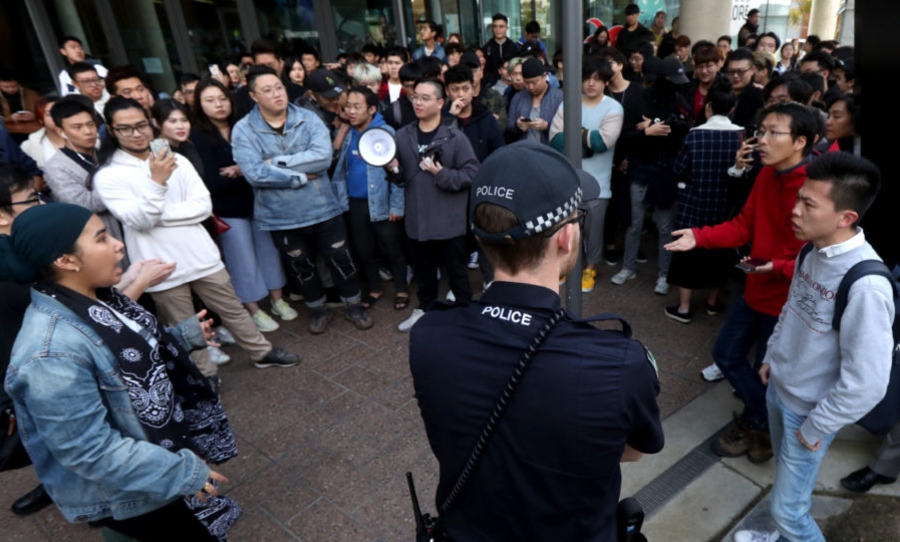A new report by Human Rights Watch has revealed that Australian universities are failing to protect the academic freedom of students from China and Hong Kong.
The report also reveals a failure to protect students and academics who criticise the Chinese Communist Party.
The report, titled They Don’t Understand the Fear We Have, published on Wednesday, gathers interviews from 24 students who support democracy in China and Hong Kong, as well as 22 additional academics.

The report revealed that many Chinese international students and academics feel surveilled while in Australia, leading many to self-censor in classrooms.
Bonnie Wang, a student at The University of Queensland and Hong Kong pro-democracy activist, told SBS news about her constant surveillance.
“When I came to Australia, I thought ‘I can utilise my freedom of speech and be free to say whatever I want, to express in support of movements in Hong Kong, also explain to others on what’s happening in Hong Kong.”
“But actually here, it’s not really safe here for me and other Hong Kongers to do that, so it’s a little bit disappointing”.
I welcome the care taken in the Human Rights Watch report into the influence of the Chinese government on Australian Universities. We cannot allow simplistic or racist depictions of students or the situation.
— Mehreen Faruqi (@MehreenFaruqi) June 30, 2021
Disappointing, indeed.
Apparently, Bonnie’s surveillance got so bad that pro-Beijing students took photos of her at one point during a pro-democracy protest and posted them on social media to alert authorities.
Bonnie is afraid that this will lead to her not returning to Hong Kong, at least not without some bad consequences.
Bonnie also said she was scared for her family members in Hong Kong, but remains determined to give Hong Kong a voice.
Australian universities are not protecting the academic freedom of students from China and academics who criticize Beijing. The Chinese government and its supporters are harassing and intimidating people who express support for democracy.
— Michael S. Bauer (@MichaelBauerll) June 30, 2021
Human Rights Watch researcher and author of the report, Sophie McNeil, verified three cases of students whose families back home had received threats or were questioned by Chinese police due to such student activism.
Sadly, McNeil has also observed much silence around the issue. “We really want Australian universities to start speaking out in terms of harassment. We want them to act,” she said.
“The first thing to do is for universities to start talking about this, admit that this exists and start coming up with some practical solutions on how to better educate and protect these young students who are in their care.”



